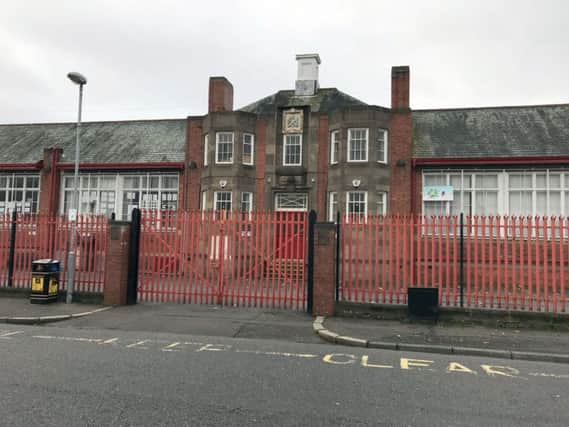Officials under fire over second day of storm-related school closures


Following the late notification of Monday school closures – via Twitter at 10.22pm on Sunday – the Department of Education (DE) then issued early notification that the blanket closure would continue through Monday until yesterday morning.
Principals were faced with the task of ensuring all parents were aware of Monday’s closures before they made the journey to school the following morning, and many parents were under pressure to make alternative childcare arrangements at short notice.
Advertisement
Hide AdAdvertisement
Hide AdWhen Storm Ophelia passed without causing as much damage in Northern Ireland as feared, several parents expressed their anger that their childcare difficulties had continued into a second day.
South of the border three people were killed as violent winds, gusting up to 119mph, caused widespread damage to electricity networks, uprooted trees and damaged property.
TUV leader Mr Allister said he believed the initially “tardy” response of the department led to an over-reaction in relation to the storm’s potential aftermath.
“They were obviously tardy the day before and I think then they did over-react to that,” Mr Allister said.
Advertisement
Hide AdAdvertisement
Hide Ad“What should have been said, was that all schools are open on Tuesday unless your school has been damaged, or lost power, in which case you will be contacted.
“There was no justification for closing schools today and losing educational opportunities for kids and putting parents through a second day of immense difficulty over childcare.”
However, Mr Allister added, the overall response to the severe weather alert was as good as could be expected.
“The school issue apart, I don’t really have any criticisms to make of how it was handled,” he added.
Advertisement
Hide AdAdvertisement
Hide Ad“We have to have realistic expectations. No one – politician, civil servant or anyone else – can stand in the way of what nature throws at us, but we have to be prepared and I thought our first responders, in particular NIE staff, reacted excellently and people back got back on line, in the main, fairly quickly. I don’t really know what more could have been done in that regard.”
Following initial criticism of the late notification on Sunday night, the DE said it was felt that communicating the closure notice via social media “would have the largest impact”.
In response to claims the department over-reacted by also closing schools for a second day, a spokeswoman said: “The decision to close schools was made yesterday (Monday) whilst Storm Ophelia was impacting on local communities and services across Northern Ireland.
“The department wanted to issue a decision as early as possible based on the latest information available from the Civil Contingencies Group and the department’s assessment of the potential issues and risks for schools.”
Advertisement
Hide AdAdvertisement
Hide AdThe spokeswoman said the decision was “not taken lightly,” and added: “The issues considered included potential power outages at schools, risk to travel arrangements including school transport and potential structural damage to schools and the time required to assess the damage.
“The department was aware that the weather would improve today but felt it important that time was given properly to assess the impact of the storm rather than seeking to put children back to school this morning.
“This decision was not taken lightly by the department and officials were conscious of the impact on parents and businesses, however the priority was always for the safety of the children and young people as well as the staff.”
DUP MLA Paul Givan said questions will be asked of the relevant authorities “why the same level of preparedness and advice to the public was not in place in Northern Ireland compared to the Republic of Ireland”.
Advertisement
Hide AdAdvertisement
Hide AdSinn Fein’s Michelle O’Neill said: “It’s important that lessons are learned including early decisions in regards to school closures plus an all-Ireland approach to emergency planning as weather doesn’t recognise borders.”
SDLP leader Colum Eastwood said a “functioning government” in the Republic, “communicating information to people quickly” proved effective, and added: “In the north, information was provided slowly and often late.”
Former PSNI assistant chief constable Alan McQuillan said the Stormont Executive’s plans for dealing with major public incidents are “way out of date”.
Mr McQuillan told the BBC’s Nolan Show on Tuesday that civil contingency advance planning documents have not been updated since 2004 and “most of the contingency arrangements were last updated in 2010”.
He added: “Some of this pre-dates the reorganisation of local government. It pre-dates the rise of social media in this sort of context to get messages out to the mass public.”